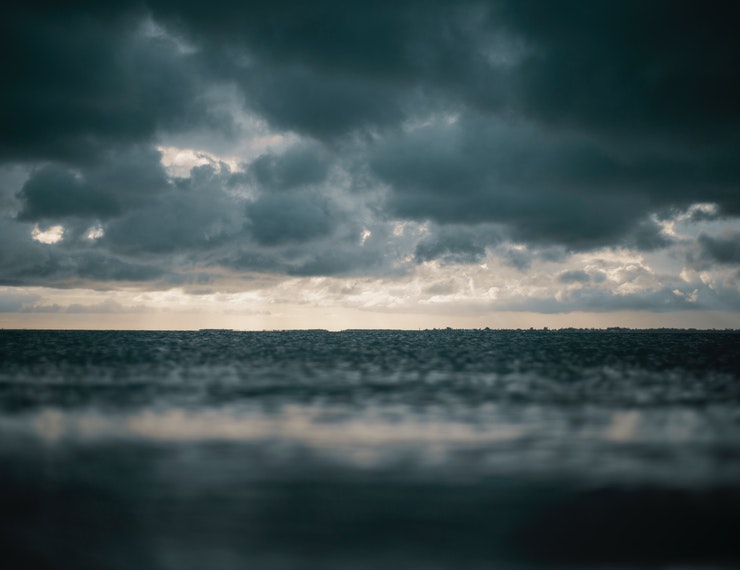
Hurricane on track for Florida after strike in Caribbean
MIAMI (AP) — Hurricane Dorian posed an increasing menace to Florida as it pushed over open waters Thursday after leaving limited damage in Puerto Rico and the Virgin Islands.
The U.S. National Hurricane Center said Dorian was expected to grow into a potentially devastating Category 3 hurricane before hitting the U.S. mainland late Sunday or early Monday somewhere between the Florida Keys and southern Georgia.
Across much of Florida’s east coast, residents began flocking to the grocery stores and gas stations, stocking up in anticipation of the storm. There were lines at many gas stations in South Florida as people began filling gas cans and topping off their gas tanks. Some residents using community Facebook groups gave updates on new shipments of water to restock the nearly empty shelves at local grocery stores.
Josefine Larrauri, a retired translator, went to a Publix supermarket in Miami only to find empty shelves in the water section and store employees were unsure of when new cases would arrive.
Larrauri fled to Orlando two years ago when Hurricane Irma was expected to hit South Florida as a Category 5 storm and ended up shifting west to land on the Lower Keys and then Marco Island. This time, Larrauri said the uncertainty made her nervous.
“I feel helpless because the whole coast is threatened,” she said. “What’s the use of going all the way to Georgia if it can land there?”
Florida Gov. Ron DeSantis declared a state of emergency for the state’s eastern and central counties Wednesday and planned to visit the National Hurricane Center in Miami on Thursday morning.
County governments along the state’s central east coast distributed sandbags and many residents rushed to warehouse retailers to load up on water, canned food and emergency supplies.
The Hurricane Center encouraged everyone in affected areas of the Bahamas and the Florida coast to have a hurricane plan in place and “not focus on the exact forecast track of Dorian’s center.”
“Hurricane Dorian looks like it will be hitting Florida late Sunday night,” President Donald Trump tweeted Thursday morning. “Be prepared and please follow State and Federal instructions, it will be a very big Hurricane, perhaps one of the biggest!”
At the Cape Canaveral Air Force Station, next door to NASA’s Kennedy Space Center, workers prepared and stood ready to support the many private rocket companies on site.
“The question is how bad is it going to be,” 45th Space Wing spokesman Jim Williams said Thursday.
Managers at Kennedy, meanwhile, kept close watch on the storm’s track while debating whether to move the mobile launch platform off the pad and into the safety of the massive Vehicle Assembly Building, built to withstand 125 mph (200 kph) gusts.
The mobile launcher is being tested at the pad for the first launch of NASA’s mega rocket, the Space Launch System or SLS, set to fly in the next year or two.
Dorian blew through the Virgin Islands as a Category 1 hurricane Wednesday while raking nearby Puerto Rico with high winds and rains.
The storm caused an islandwide blackout in St. Thomas and St. John in the U.S. Virgin Islands, and scattered power outages in St. Croix, government spokesman Richard Motta said. The storm also downed trees and at least one electric pole in St. Thomas, he said.
And there were no reports of serious damage in the British Virgin Islands, where Gov. Augustus Jaspert said crews were already clearing roads and inspecting infrastructure by late Wednesday afternoon.
Dorian was centered about 220 miles (355 kilometers) north-northwest of San Juan, Puerto Rico by late Thursday morning. The U.S. National Hurricane Center said its top winds were blowing at 85 mph (140 kph) as the storm moved northwest at 13 mph (20 kph).
The Hurricane Center projected the storm could have winds of 125 mph (200 kph) by the time it reaches the mainland. Also imperiled were the Bahamas, with Dorian’s forecast track running just to the north of Great Abaco and Grand Bahama islands.
Puerto Rico seemed to be spared any heavy wind and rain, a huge relief on an island where blue tarps still cover some 30,000 homes nearly two years after Hurricane Maria. The island’s 3.2 million inhabitants also depend on an unstable power grid that remains prone to outages since it was destroyed by Maria, a Category 4 storm.
Several hundred customers were without power across Puerto Rico, said Ángel Figueroa, president of a union that represents power workers.
Police said an 80-year-old man in the northern town of Bayamón died Wednesday after he fell trying to climb up to his roof to clear it of debris ahead of the storm.
___
Associated Press writers Danica Coto in San Juan, Puerto Rico; Marcia Dunn in Cape Canaveral, Florida; and Mike Schneider in Orlando, Florida; contributed to this report.


 How to resolve AdBlock issue?
How to resolve AdBlock issue? 